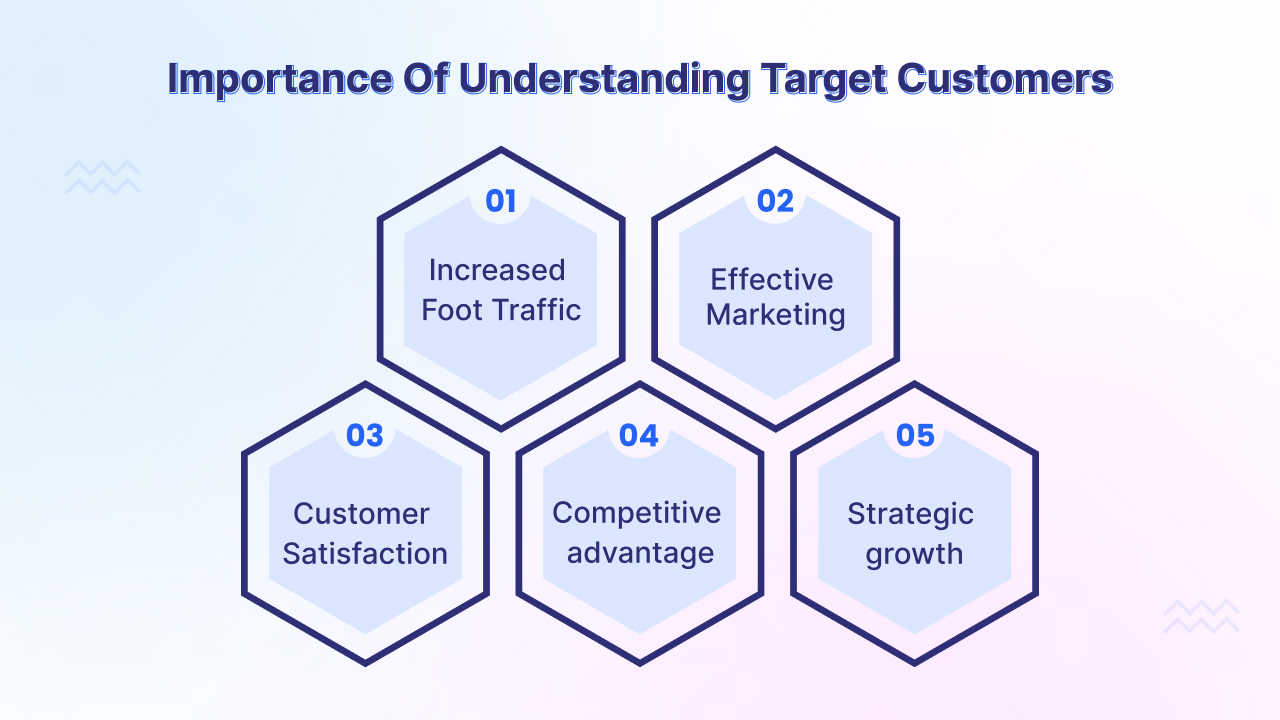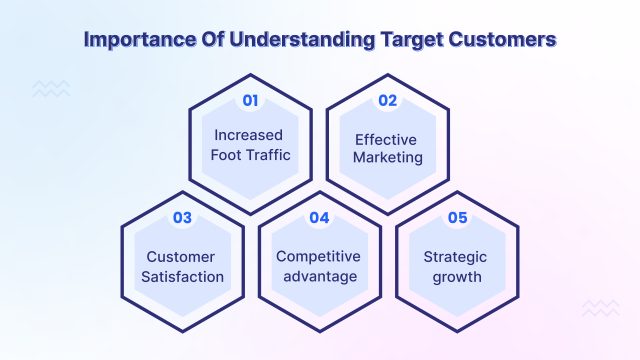How Accurate Financial Reporting Builds Trust and Supports Business Purchases is not just a statement; it’s the cornerstone of successful business transactions. In today’s competitive landscape, businesses that prioritize transparency in their financial reporting are not only seen as credible but are also more likely to forge lasting relationships with stakeholders. Imagine the boost to a company’s reputation when its financial statements reflect honesty and clarity—this trust translates into consumer loyalty and investor confidence.
Accurate financial reporting is essential for establishing credibility with consumers and investors alike. Companies that deliver consistent and transparent financial data enhance their market position, making them more attractive to potential buyers. In contrast, organizations with unreliable reporting practices find themselves struggling to gain trust and, consequently, may face significant setbacks in their business transactions.
Importance of Accurate Financial Reporting: How Accurate Financial Reporting Builds Trust And Supports Business Purchases
Accurate financial reporting is the backbone of any successful business, establishing credibility and fostering trust among stakeholders. When companies present reliable financial data, they not only comply with regulations but also build a solid reputation that encourages investment and collaboration. This authenticity lays the groundwork for long-lasting relationships, proving invaluable in today’s competitive marketplace.Transparent financial statements are crucial for instilling confidence among investors, customers, and partners.
For example, companies like Patagonia and Ben & Jerry’s have gained substantial trust through their commitment to transparency and ethical financial practices. Patagonia’s environmental and social responsibility initiatives are backed by clear financial reporting, showcasing their dedication to sustainability while ensuring stakeholders understand the financial impacts of their policies. Similarly, Ben & Jerry’s provides detailed financial disclosures that highlight their ethical sourcing and community support, reinforcing trust in their brand.
Building Long-Term Relationships with Stakeholders
Accurate financial reporting plays a pivotal role in fostering enduring relationships with various stakeholders, including investors, employees, and customers. This accuracy serves as the foundation for trust, encouraging stakeholders to engage more deeply with the business. The following points illustrate how financial reporting influences this relationship:
- Investor Confidence: Investors are more likely to commit resources to a business that provides transparent and accurate financial statements. This confidence leads to increased capital investment and stock stability.
- Employee Engagement: When a company shares its financial health openly, employees feel more secure in their positions. This shared information can motivate employees to invest in the company’s future, driving productivity and lowering turnover.
- Customer Loyalty: Customers value brands that demonstrate integrity. Companies that are open about their financial dealings often attract loyal customers who appreciate transparency and accountability.
- Supplier Relationships: Accurate financial reporting helps suppliers assess a company’s reliability and creditworthiness, fostering stronger business relationships through mutual trust and understanding.
“Transparency in financial reporting is not just a regulatory requirement; it’s a trust-building measure that can lead to sustainable business success.”
In the realm of business, companies that prioritize accurate financial reporting often find themselves reaping the rewards of strengthened stakeholder relationships, increased trust, and ultimately, greater success in their ventures. The commitment to financial accuracy is not merely a best practice; it is a strategic advantage that fosters growth and resilience in a dynamic economic landscape.
Trust as a Foundation for Business Purchases
Trust is a crucial element in the landscape of business transactions. When consumers and investors are faced with purchasing decisions, their willingness to engage often hinges on the trustworthiness of the company involved. Accurate financial reporting plays a central role in establishing this trust, as it assures stakeholders that the business operates transparently and ethically. In a marketplace filled with choices, companies that convey reliability through their financial practices are more likely to attract customers and investors alike.In today’s competitive economy, the perception of trust can significantly influence purchasing decisions.
Consumers are increasingly informed and cautious, opting to engage with businesses that demonstrate sound financial health through consistent and reliable reporting practices. Investors, on the other hand, are keen to invest in organizations that exhibit stability and transparency. A comparison between businesses with dependable financial practices and those that report inconsistently reveals stark differences in consumer confidence and investor interest.
Comparison of Reliable versus Inconsistent Financial Practices
The variance in trustworthiness between businesses with reliable financial reporting and those with inconsistent practices is profound. Reliable businesses tend to experience greater consumer loyalty, better investment opportunities, and overall enhanced market reputation. In contrast, companies with inconsistent reporting may face skepticism and reduced engagement from both consumers and investors.Key factors influencing the perception of trustworthiness in financial documentation include:
- Transparency: Clear and open financial statements that are easily accessible foster trust among stakeholders.
- Consistency: Regular, standardized reporting that follows established guidelines enhances reliability and reduces uncertainty.
- Accuracy: Precise financial information that reflects the true state of the business instills confidence in stakeholders.
- Compliance: Adherence to regulatory standards and practices demonstrates a commitment to ethical conduct, bolstering trust.
- Third-Party Audits: Independent verification of financial statements by reputable auditing firms reinforces credibility.
The importance of these factors cannot be overstated. For instance, a company that routinely updates its stakeholders with accurate financial data alongside independent audit reports is likely to gain a loyal customer base and attract investors. Conversely, a firm that fails to maintain these practices may find itself facing challenges such as diminished market presence and increased scrutiny. In the realm of business purchases, trust is not merely a benefit; it is a foundational pillar that supports long-term success and sustainability.
Impact of Financial Reporting on Investor Relations
In the realm of business, financial reporting serves as a critical tool for fostering investor relations. Investors depend on accurate financial data to make informed decisions about their investments, making the transparency and reliability of financial reports paramount. Companies that prioritize accurate reporting not only attract potential investors but also cultivate trust and loyalty among existing stakeholders.Financial reports are essential in shaping a company’s image and value proposition.
These documents provide a clear picture of a company’s financial health, enabling potential investors to assess its viability and growth potential. Regular updates in financial performance can strengthen relationships with existing investors by keeping them informed and engaged, leading to a more robust investment community.
Metrics of Interest for Investors
Investors closely scrutinize specific metrics when evaluating financial reports. These key performance indicators (KPIs) help them gauge the company’s performance, risk profile, and potential for growth. Understanding these metrics is crucial for both attracting new investments and maintaining the confidence of existing investors. Below is a table of the most sought-after metrics:
| Metric | Importance |
|---|---|
| Revenue Growth | Indicates the company’s ability to increase sales over time, reflecting market demand. |
| Net Profit Margin | Shows the percentage of revenue remaining after all expenses, indicating profitability. |
| Return on Equity (ROE) | Measures the return generated on shareholders’ equity, critical for assessing financial efficiency. |
| Debt-to-Equity Ratio | Assesses financial leverage and risk, important for understanding the company’s capital structure. |
| Cash Flow from Operations | Indicates the cash generated from core operations, vital for liquidity and sustainability. |
Keeping investors informed through regular financial updates not only enhances trust but also encourages ongoing investment. By consistently delivering transparent and accurate financial reports, businesses can solidify their reputation and establish long-term relationships with their stakeholders, positioning themselves favorably in the competitive market landscape.
Regulatory Compliance and Its Role in Building Trust
In the complex world of finance, regulatory compliance is not merely a box to check; it is a vital component that solidifies trust between businesses and their stakeholders. Adhering to established financial regulations and standards ensures that companies maintain transparency and accountability, which are crucial for fostering long-term relationships with investors, customers, and partners. Compliance with these regulations serves as a testament to a company’s integrity and operational efficacy.Companies must recognize the repercussions that can arise from non-compliance with financial reporting regulations.
Failure to adhere to these standards can lead to severe consequences, including legal penalties, loss of investor confidence, and irreparable damage to a company’s reputation. The implications of non-compliance extend beyond immediate financial losses to long-term trust erosion, which can hinder business growth and market positioning.
Key Financial Regulations Impacting Trustworthiness
Understanding the financial regulations that govern reporting practices is essential for any business seeking to build trust in the marketplace. Several regulations play a pivotal role in ensuring accurate financial reporting, and non-compliance with these rules can lead to dire consequences. Prominent regulations include:
- Generally Accepted Accounting Principles (GAAP): These standards are critical for maintaining consistency and transparency in financial reporting across industries.
- International Financial Reporting Standards (IFRS): Adopted globally, IFRS enhances the comparability of financial statements and fosters international investment.
- Sarbanes-Oxley Act (SOX): Enacted in response to corporate scandals, SOX mandates strict reforms to enhance financial disclosures and prevent accounting fraud.
- Financial Accounting Standards Board (FASB): This organization establishes and improves standards of financial accounting and reporting, ensuring transparency for investors.
Maintaining compliance with these regulations not only safeguards a company’s legal standing but also reinforces trust among stakeholders. As
“adherence to regulations is the cornerstone of reliable financial reporting,”
companies that prioritize regulatory compliance demonstrate their commitment to ethical practices and responsible governance. Embracing these standards is a proactive approach to fostering trust and ensuring sustainable business success.
Financial Reporting and Business Valuation
Accurate financial reporting is a cornerstone of effective business valuation. Investors, stakeholders, and potential buyers rely on precise financial statements to assess a company’s true worth. When financial reports reflect the actual performance and financial health of a business, they become powerful tools in establishing confidence and credibility in the market, directly influencing valuation outcomes.Financial reporting plays a crucial role in determining the value of a company.
Reliable financial statements, including the balance sheet, income statement, and cash flow statement, provide insights into a firm’s profitability, liquidity, and overall financial stability. These metrics are essential in estimating future earnings potential and assessing the risks associated with the investment.
Valuation Methods Based on Financial Statements
Several methods are commonly used to evaluate a company’s worth, all of which hinge on the data derived from accurate financial reporting. Understanding these methods is essential for discerning how financial reports impact valuations.The following key valuation methods utilize financial statements:
- Discounted Cash Flow (DCF) Analysis: This method estimates the company’s value based on the present value of projected future cash flows, adjusted for risk.
- Comparable Company Analysis (Comps): This approach evaluates a company’s value against similar businesses in the industry, utilizing metrics derived from their financial reports.
- Precedent Transactions Analysis: This method examines historical transactions involving similar companies to gauge what others were willing to pay, using relevant financial data.
- Asset-Based Valuation: This approach calculates a company’s worth based on its tangible and intangible assets, as reflected in the financial statements.
By employing these methods, investors can derive a more accurate valuation, which is heavily influenced by the integrity of financial reporting.
Common Valuation Metrics Derived from Financial Reports
To understand a company’s valuation effectively, several financial metrics serve as indicators of performance and worth. These metrics are crucial for stakeholders to make informed decisions.The following is a list of common valuation metrics derived from financial reports:
- Earnings Before Interest, Taxes, Depreciation, and Amortization (EBITDA): A measure of operating performance that indicates a company’s profitability before non-operating expenses.
- Price-to-Earnings (P/E) Ratio: This ratio compares a company’s current share price to its earnings per share, offering insights into market valuation.
- Debt-to-Equity Ratio: This metric compares the total liabilities of a company to its shareholder equity, indicating financial leverage and risk levels.
- Return on Equity (ROE): This measures the profitability of a company in generating income from shareholders’ equity, indicating the effectiveness of management.
- Current Ratio: A liquidity metric that assesses a company’s ability to cover its short-term liabilities with its short-term assets.
Each of these metrics relies heavily on the accuracy of financial reporting, highlighting the importance of maintaining meticulous and transparent financial records. This not only facilitates proper valuation but also enhances the overall trust and reliability of the business in the eyes of investors and stakeholders.
Case Studies of Successful Financial Reporting
Accurate financial reporting is not just a matter of compliance; it is a strategic advantage that can significantly enhance a company’s market position. This section delves into case studies of companies that have thrived due to their commitment to transparency and integrity in financial reporting. By analyzing these real-world scenarios, businesses can glean valuable insights into the practices that foster trust and facilitate successful acquisitions.
Case Study: Company A – Transforming Market Position through Transparency
Company A, a mid-sized technology firm, faced stagnation in growth due to lack of investor confidence. By implementing a robust financial reporting system, they improved their reporting accuracy and timeliness. As a result, investor interest surged, leading to a successful acquisition by a major industry player. The steps that led to this transformation included:
- Adoption of international financial reporting standards (IFRS) to enhance credibility.
- Regular financial audits conducted by reputable third-party firms to ensure transparency.
- Implementation of advanced financial software that provided real-time reporting capabilities.
The meticulous reporting not only improved investor relations but also positioned Company A as a viable candidate for acquisition, ultimately leading to a lucrative buyout.
Comparative Financial Reporting Practices Across Industries
Different industries exhibit varied approaches to financial reporting, which can significantly affect acquisition outcomes. For example, the financial services sector often necessitates stringent reporting due to regulatory demands. In contrast, technology companies may prioritize speed and innovation while maintaining compliance. Examples of industry-specific practices include:
- In manufacturing, companies may focus on cost accounting and inventory valuation to provide accurate profit margins.
- The healthcare industry often emphasizes compliance with government regulations, showcasing financial stability and operational efficiency.
- Retail businesses lean towards detailed sales reporting to monitor consumer trends and guide strategic decisions.
The effectiveness of these practices can dramatically influence a company’s attractiveness to potential acquirers, impacting valuations and negotiation dynamics.
Lessons from Poor Financial Reporting Practices
The repercussions of inadequate financial reporting can be severe, as evidenced by numerous high-profile failures. Companies like Enron and Lehman Brothers serve as cautionary tales of how misleading financial statements can lead to catastrophic consequences. Key lessons include:
“Transparency is the cornerstone of trust; without it, even the strongest brands can crumble.”
The lessons learned from these cases include:
- The importance of ethical financial practices to maintain stakeholder trust.
- The necessity of regular internal audits to catch discrepancies early.
- The implications of poor financial reporting on market reputation and investor confidence.
By understanding the ramifications of poor reporting, businesses can better safeguard their operations and foster a culture of accountability and accuracy.
Technology and Financial Reporting Accuracy
In the dynamic landscape of business finance, technological advancements play a pivotal role in enhancing the accuracy of financial reporting. As businesses increasingly rely on data-driven decisions, the integration of innovative technologies has become essential to ensuring the precision and reliability of financial data.The rise of advanced software solutions, cloud computing, and data analytics tools has transformed the financial reporting landscape.
These technologies help businesses automate processes, reduce human error, and provide real-time insights into their financial health. As a result, companies can maintain more accurate financial records, leading to improved trust among stakeholders and better decision-making.
Software Tools and Platforms Enhancing Financial Reporting Accuracy, How Accurate Financial Reporting Builds Trust and Supports Business Purchases
Businesses today have a range of software tools and platforms available that significantly improve the accuracy of financial reporting. These tools not only streamline data collection and analysis but also ensure compliance with regulatory standards. Below are some key software solutions that assist in maintaining reliable financial data:
- Enterprise Resource Planning (ERP) Systems: ERP systems such as SAP and Oracle integrate various business processes, providing a unified platform for financial data management. This integration minimizes discrepancies and enhances data consistency.
- Accounting Software: Tools like QuickBooks and Xero offer automated bookkeeping, invoicing, and reporting features that reduce manual entry errors, thereby increasing the accuracy of financial statements.
- Business Intelligence (BI) Tools: BI tools like Tableau and Power BI enable businesses to visualize financial data, making it easier to identify trends, anomalies, and insights that might be missed in traditional reporting methods.
- Cloud-Based Solutions: Cloud accounting platforms allow real-time access to financial data from anywhere, facilitating better collaboration and reducing the risk of outdated information affecting the accuracy of reports.
The integration of these technologies not only enhances accuracy but also allows for more efficient data management and reporting processes.
Benefits of Using Technology in Financial Reporting
Utilizing technology in financial reporting provides a multitude of benefits for businesses striving for accuracy and reliability. The following table summarizes the key advantages:
| Benefit | Description |
|---|---|
| Increased Accuracy | Automation reduces manual errors and discrepancies in financial data. |
| Real-Time Reporting | Access to up-to-date financial information facilitates timely decision-making. |
| Cost Efficiency | Streamlined processes lower operational costs associated with financial reporting. |
| Enhanced Compliance | Built-in compliance features ensure adherence to regulatory requirements. |
| Improved Data Analytics | Advanced analytics tools enable deeper insights into financial performance. |
Embracing technology in financial reporting is no longer an option but a necessity for businesses aiming to build trust and enhance their financial integrity. By leveraging these innovative solutions, companies can produce accurate financial reports that reflect their true financial health and foster stronger relationships with investors and stakeholders.
Future Trends in Financial Reporting

As the business landscape continues to evolve, so too does the field of financial reporting. Emerging technologies, shifting regulations, and increased expectations from stakeholders are driving profound changes in how organizations present their financial data. Staying ahead of these trends is crucial for businesses aiming to maintain transparency, enhance trust, and optimize decision-making.The integration of advanced technologies and changes in regulatory frameworks will reshape financial reporting practices significantly.
Companies must adapt to these developments to ensure compliance, accuracy, and relevance in their reporting processes.
Emerging Trends in Financial Reporting
Several key trends are influencing the future of financial reporting, driven by technological advancement and regulatory changes:
- Automation and Artificial Intelligence: Automation tools and AI algorithms are streamlining data collection and analysis, significantly enhancing the efficiency of financial reporting. These technologies reduce human error and increase the accuracy of financial statements.
- Real-Time Reporting: Companies are moving towards real-time financial reporting to provide stakeholders with up-to-date information. This trend is driven by the need for timely decision-making in a fast-paced business environment.
- Environmental, Social, and Governance (ESG) Reporting: There is a growing emphasis on ESG factors in financial reporting. Stakeholders are increasingly interested in how companies manage sustainability and social responsibility, prompting organizations to enhance transparency in these areas.
- Cloud-Based Reporting Solutions: The adoption of cloud technology is facilitating better collaboration and data accessibility. Financial reporting platforms hosted in the cloud allow for more flexible and comprehensive data management.
Impact of Artificial Intelligence on Financial Reporting Accuracy
Artificial Intelligence is set to revolutionize financial reporting by enhancing the precision and reliability of financial data. AI technologies can analyze vast datasets to identify patterns, detect anomalies, and generate insights that humans might overlook.
The deployment of AI tools can lead to a significant reduction in reporting errors, promoting greater confidence among investors and stakeholders.
As AI continues to improve, it will facilitate predictive analytics, allowing companies to forecast financial outcomes more accurately. Companies such as Xero are already leveraging AI to automate bookkeeping tasks, thus minimizing the risk of human error and ensuring higher accuracy in financial reports.
Predictions on Evolving Regulations Shaping Financial Reporting Practices
Future regulatory changes are anticipated to further influence financial reporting standards. With increasing global interconnectedness, regulations may become more standardized, requiring businesses to adopt more rigorous reporting practices across jurisdictions.The following points highlight potential regulatory trends that may impact financial reporting:
- Increased Focus on Transparency: Regulators are likely to enforce stricter transparency requirements, compelling companies to provide more comprehensive disclosures about their financial health and operational risks.
- Adoption of International Financial Reporting Standards (IFRS): More regions may adopt IFRS, standardizing financial reporting practices globally and enhancing comparability for investors.
- Regulations on Digital Reporting: As digital reporting becomes the norm, regulators may introduce specific guidelines governing the accuracy and security of digital financial disclosures.
- Enhanced Scrutiny of ESG Metrics: Expect regulatory bodies to demand standardized reporting on ESG factors, ensuring companies present accurate, comparable data on their sustainability efforts.
These trends indicate that financial reporting is not only about compliance but also about fostering trust and transparency in a rapidly changing business environment.















